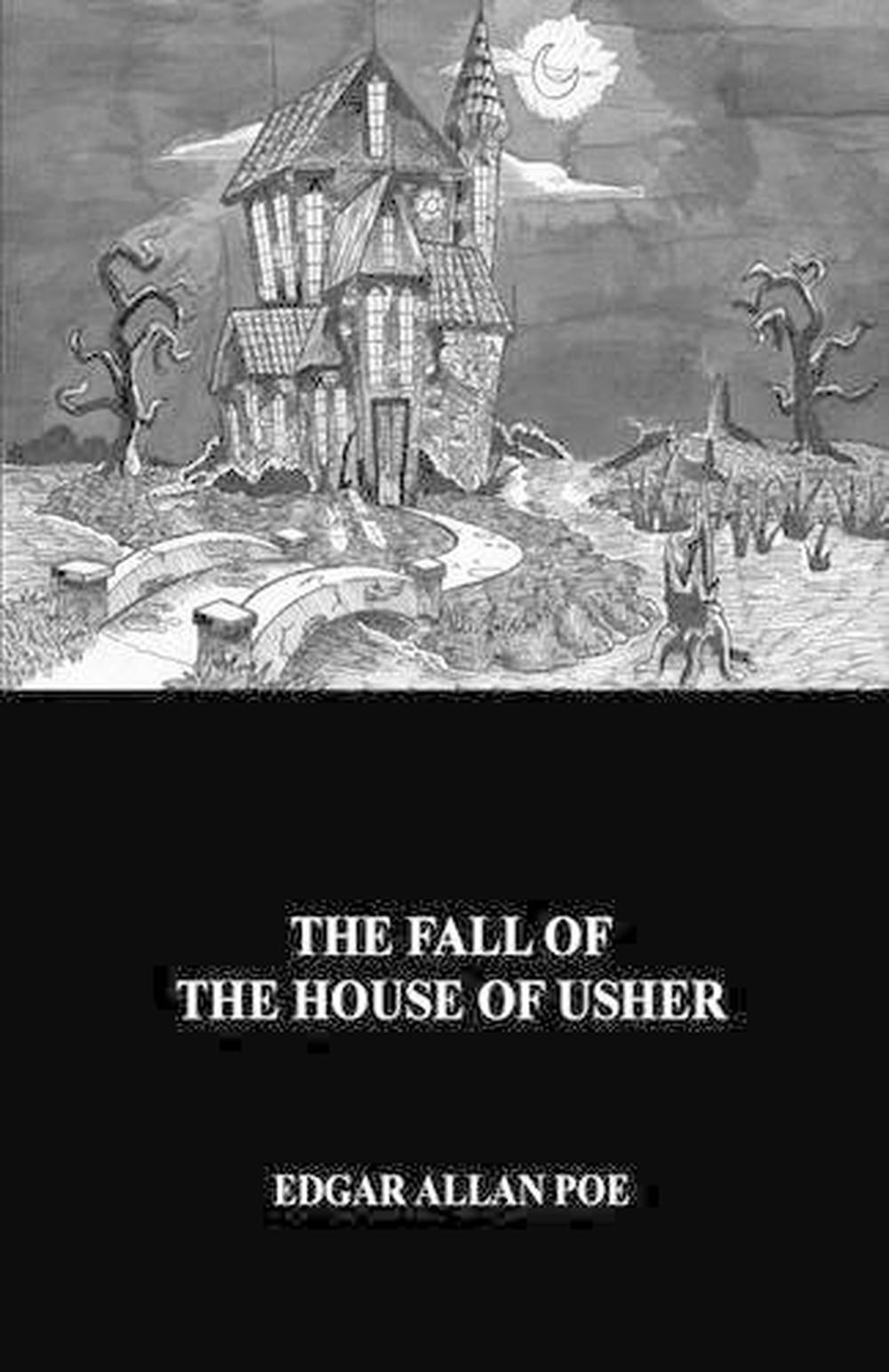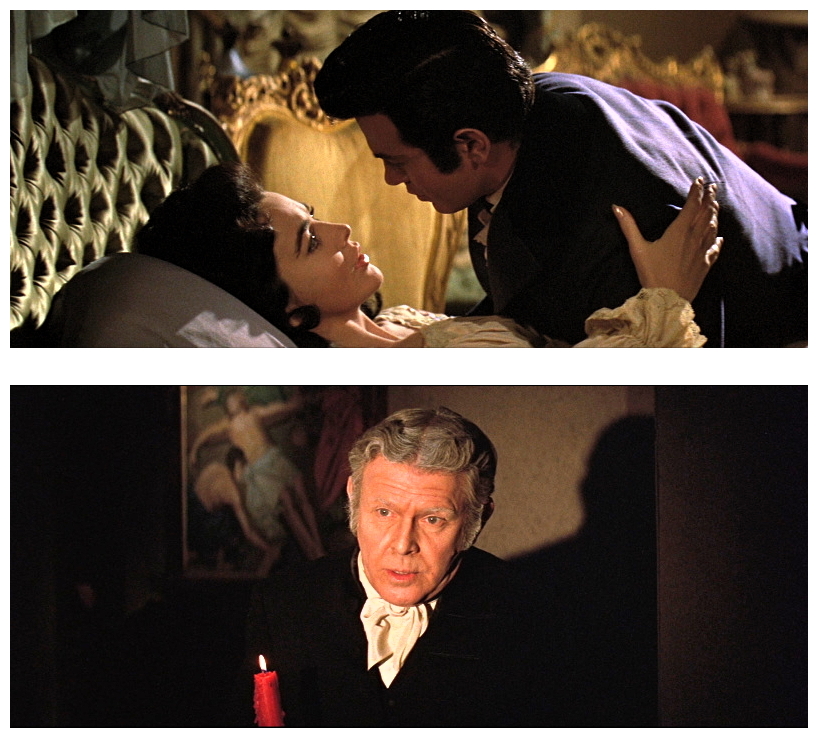Table Of Content

It’s not so much the “what” as the “why” that the audience and Dupin need to be answered. Upon my entrance, Usher arose from a sofa on which he had been lying at full length, and greeted me with a vivacious warmth which had much in it, I at first thought, of an overdone cordiality—of the constrained effort of the ennuyé man of the world. The now ghastly pallor of the skin, and the now miraculous lustre of the eve, above all things startled and even awed me. The silken hair, too, had been suffered to grow all unheeded, and as, in its wild gossamer texture, it floated rather than fell about the face, I could not, even with effort, connect its Arabesque expression with any idea of simple humanity. “The Fall of the House of Usher” updates the work of Edgar Allan Poe for the era of Big Pharma, turning his most famous tales into a sprawling story of the decline of a wealthy American family.
Poe's Stories

Ruth Codd (the highlight of The Midnight Club) plays Roderick’s much younger wife Juno, a former heroin addict whose life was turned around thanks to the drugs the Ushers peddle, while Rahul Kohli, Henry Thomas and Kate Siegel each take on a dastardly member of the Usher brood. Alongside his favoured players is Mark Hamill as an unfeeling lawyer/fixer for the Usher family who sounds as if he gargles a pint of nails every morning. But as we know from the start, there’s no point in getting overly attached to them, as grisly fates are assured for all.

Poe's Short Stories (SparkNotes Literature Guide)
The Fall of the House of Usher: Episode One Recap - www.autostraddle.com
The Fall of the House of Usher: Episode One Recap.
Posted: Thu, 12 Oct 2023 07:00:00 GMT [source]
“The Fall of the House of Usher” is a short story published in 1839 in American writer Edgar Allan Poe. It was first published in Gentleman’s Magazine by Burton and later included in the collection Tales of Grotesque and Arabesque in 1840. The story is a work of Gothic Fiction and deals with the themes of isolation, madness, family, and metaphysical identities.
Greatest Works of Edgar Allan Poe (Deluxe Hardbound Edition)
An excited and highly distempered ideality threw a sulphureous lustre over all. Among other things, I hold painfully in mind a certain singular perversion and amplification of the wild air of the last waltz of Von Weber. By the utter simplicity, by the nakedness of his designs, he arrested and overawed attention. For me at least — in the circumstances then surrounding me — there arose out of the pure abstractions which the hypochondriac contrived to throw upon his canvass, an intensity of intolerable awe, no shadow of which felt I ever yet in the contemplation of the certainly glowing yet too concrete reveries of Fuseli. The disease of the lady Madeline had long baffled the skill of her physicians. A settled apathy, a gradual wasting away of the person, and frequent although transient affections of a partially cataleptical character, were the unusual diagnosis.
The narrator tells the readers the term “The House of Usher” refers to the house and the family dwelling in the house and the Usher bloodline. The title does not only refer to the literal fall of the house but also to the fall of the Usher family with the death of Roderick Usher. The narrator mentions that Roderick and his sister Madeline are the only two surviving family members, so their death makes the death of the family line. One can assume that Roderick can see the future with his lustrous and magical eyes. He is aware of the upcoming events, and he speaks about them before. One can also assume that Roderick causes the things to happen; that is why he is preoccupied with the fear that he manifests in reality.
How did Lenore, Madeline, and Roderick all die?
Soon, Roderick posits his theory that the house itself is unhealthy, just as the narrator supposes at the beginning of the story. ‘The Fall of the House of Usher’ is probably Edgar Allan Poe’s most famous story, and in many ways it is a quintessential Gothic horror story. We have a mysterious secret afflicting the house and eating away at its owner, the Gothic ‘castle’ (here, refigured as a mansion), premature burial (about which Poe wrote a whole other story), the mad owner of the house, and numerous other trappings of the Gothic novel.
Once Roderick and Madeline were the only ones left in the bar after a long night of drinking, Verna revealed to the twins that she knew what they had done. But, if they agreed to her terms, she could guarantee that they would not only get away with Rufus' murder but also rise to control Fortunato's billion-dollar painkiller empire and never be convicted of a single crime. Roderick Usher is a gifted poet and artist, whose talents the narrator praises before sharing a poem Usher wrote, titled ‘The Haunted Palace’.
Characters
Shaking off from my spirit what must have been a dream, I scanned more narrowly the real aspect of the building. Perhaps the eye of a scrutinising observer might have discovered a barely perceptible fissure, which, extending from the roof of the building in front, made its way down the wall in a zigzag direction, until it became lost in the sullen waters of the tarn. With this foreboding introduction, we enter the interior through a Gothic portal with the narrator. With him we encounter Roderick Usher, who has changed drastically since last the narrator saw him. His cadaverous appearance, his nervousness, his mood swings, his almost extrahuman sensitivity to touch, sound, taste, smell, and light, along with the narrator’s report that he seems lacking in moral sense, portrays a deeply troubled soul.
I was forced to fall back upon the unsatisfactory conclusion, that while, beyond doubt, there are combinations of very simple natural objects which have the power of thus affecting us, still the analysis of this power lies among considerations beyond our depth. The claustrophobia of the mansion affects the relations among characters. For example, the narrator realizes late in the game that Roderick and Madeline are twins, and this realization occurs as the two men prepare to entomb Madeline. The cramped and confined setting of the burial tomb metaphorically spreads to the features of the characters. Because the twins are so similar, they cannot develop as free individuals. Madeline is buried before she has actually died because her similarity to Roderick is like a coffin that holds her identity.
Contemporary readers and critics interpreted the story as a somewhat sensationalized account of Poe’s supposed madness. (As a recluse, Poe often invited such accusations.) Later scholarship pursued alternative interpretations. Some scholars speculated that Poe may have attached special importance to the fact that Roderick and Madeline are twins, noting that Poe previously investigated the phenomenon of the double in “Morella” (1835) and “William Wilson” (1839). Other scholars pointed to the work as an embodiment of Poe’s doctrine of l’art pour l’art (“art for art’s sake”), which held that art needs no moral, political, or didactic justification. Like Madeline, Roderick is connected to the mansion, the titular House of Usher.
He yells that Madeline is standing behind the door, and when the door opens with the storm, she is standing. Even at the beginning of the story, Roderick claims that he will die because of fear, and he does indeed die because of fear. The short story “The Fall of the House of Usher” shows a split-personality disorder in a dramatized way. The tale explores the various aspects of identity and the means through which these aspects could possibly be fractioned. The story emphasized the difference between the mental and physical parts and how these parts interact with each other. He is a bookish and intellectual man while his sister is sick and bedridden.
Auguste Dupin (Carl Lumbly), to come hear his confession following the deaths of all six of his adult children (by five different mothers)—Frederick (Henry Thomas), Tamerlane (Samantha Sloyan), Victorine (T'Nia Miller), Napoleon (Rahul Kohli), Camille (Kate Siegel), and Prospero (Sauriyan Sapkota)—in the span of a week. From the start of the first episode of The Fall of the House of Usher, we know that all of Roderick Usher's children are dead. It's the how and the why of their deaths that plays out over the course of Mike Flanagan's new horror anthology series, now streaming on Netflix.
Roderick Usher prophecies his death to the narrator in the manner it really occurs. However, it is worth noting that the death of Roderick is another literal fall. The idea of fear is worse for Roderick Usher than the object he fears. One can interpret the last action in a way that fear of any occurrence manifests it in real life. Much of the apparent madness in the story does not appear to be due to supernatural elements. Considering this, one can interpret that Roderick does not bury his sister alive, but she is back from the dead.

No comments:
Post a Comment